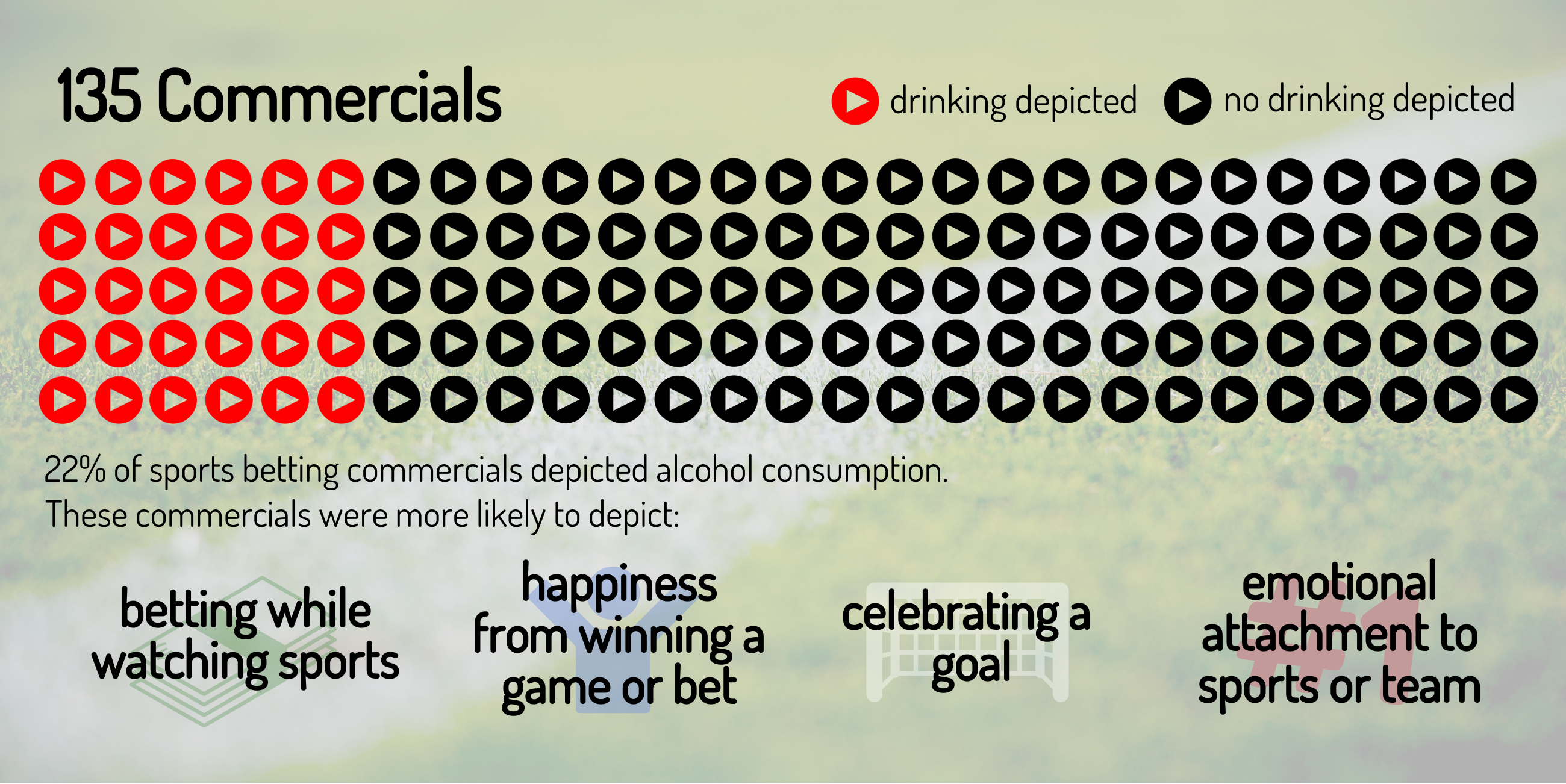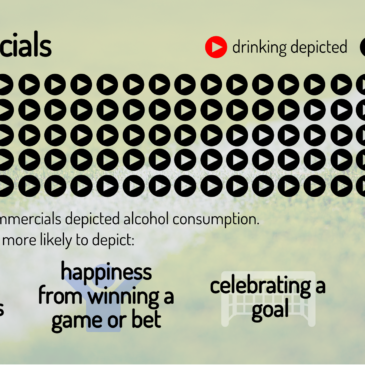Sports betting is among the most common forms of online gambling, and will continue to grow in popularity following legalization across the United States. Soon, advertising from sports betting companies could match the ubiquity of alcohol marketing seen in professional sports broadcasts, a public health concern given the well-documented, harmful relationship between problem drinking and gambling. This week, as part of our Special Series on Gambling Disorder, The DRAM reviews a study by Hibai Lopez-Gonzalez and colleagues that examined the depiction of alcohol consumption in commercials for online sports betting.
What was the research question?
How do sports betting commercials portray alcohol consumption in relation to sports culture and gambling?
What did the researchers do?
The researchers analyzed 135 television commercials for soccer betting. They reviewed commercials from the YouTube channels of 29 online sports betting companies operating in Spain or the United Kingdom that regularly advertised during sporting events. They categorized each commercial by whether or not its characters consumed alcohol and assessed if characters were shown expressing happiness from winning a game or bet, being in an emotional state, having an emotional attachment with the sport or team, celebrating a goal, betting while watching a game, or accepting free bets or other promotions. They used chi-squared tests to compare the content of commercials showing alcohol consumption and commercials without.
What did they find?
Thirty commercials (22% of the sample) featured alcohol consumption (see Figure). Commercials showing alcohol consumption depicted betting while watching sports, happiness from winning a game or bet, celebrating a goal, and emotional attachment significantly more often than commercials that did not feature alcohol. The researchers also found that having more characters (i.e. depicting more friendship) in commercials with alcohol drinking was significantly associated with characters being emotional, betting while watching sports, celebrating a goal, receiving offers for promotions, and drinking beer.

Figure. Proportion of commercials showing alcohol consumption to commercials without alcohol, and frequent features of commercials with alcohol. Click image to enlarge.
Why do these findings matter?
Advertising can shape our perceptions of responsible gambling and drinking, and frequently pairing alcohol consumption with positive, emotional sports gambling experiences could help to normalize their co-occurrence. Additionally, associating drinking and gambling with sports and friendship obscures their possible harms with deceptively healthy implications. People who wager on sports should be aware of tactics used by betting brands to promote their services and understand the effects of alcohol on their gambling habits, and regulators must continue to weigh the effects of these commercials on vulnerable populations.
Every study has limitations. What are the limitations in this study?
This study was a preliminary look into alcohol consumption in sports betting commercials. More research is necessary to conclude whether depictions of drinking influence viewers’ own drinking and gambling habits. Also, all commercials were European and only featured gambling on soccer matches; results might differ by region and sport.
For more information:
If you think that you or someone you know might have a gambling problem, visit the National Council on Problem Gambling for screening tools and resources. For additional resources, visit our addiction resources page.
Learn more about Gambling Disorder Screening Day on March 12th and how you can help spread awareness by clicking here.
— Jamie Juviler
What do you think? Please use the comment link below to provide feedback on this article.




